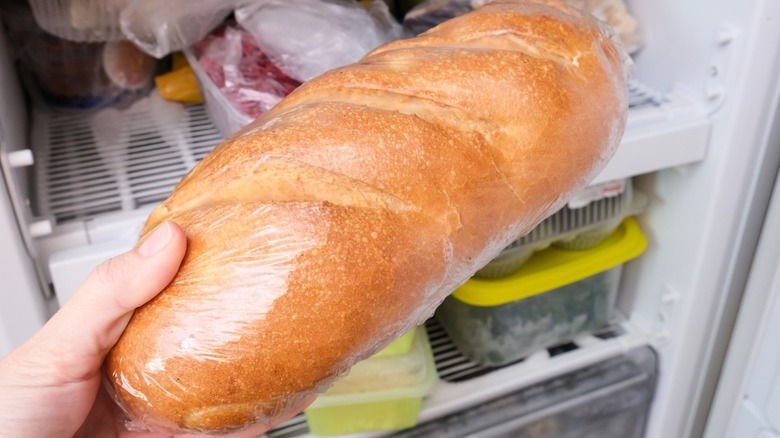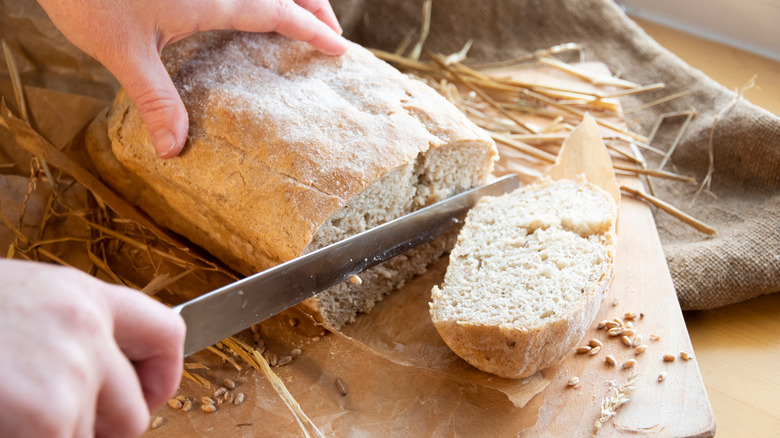Should You Really Refrigerate Bread?
When it comes to properly storing food, it seems there are so many myths about what belongs where. Some produce is stored in the pantry, while other types should be refrigerated. Some people store their butter on the kitchen counter, while others choose to keep it cold. The same thing goes for syrup, where the sugar and water content can make all the difference (via Cornell Mushroom Blog). It seems common among food items that, for proper storage guidance, it simply depends on who you ask.
Bread is another grocery store purchase that has seen mixed recommendations when it comes to the best storage method. Some keep their bread in the pantry, while others immediately put it in the freezer after buying it. And still, other rumors float around, suggesting bread belongs in the refrigerator. Though two out of these three methods are fine, an expert revealed that one method is the absolute wrong way to store bread. Hint: It's not the pantry — or the freezer.
You should not refrigerate bread
When it comes to foods that get ruined in colder temperatures, bread is high on the list. Though you might think to store bread in the fridge to keep its freshness, it isn't going to do the flavor any favors. Southern Living spoke with Kimberly Baker, who works as Clemson University's Extensions Food Programs and Safety director, and she suggested putting bread in the fridge is a no-go.
"The loss of moisture will cause the bread to become dry, tough, and give the bread a stale flavor," Baker told the outlet. Baker explains that this moisture loss occurs due to starches recrystallizing in below-40 temperatures.
Your best bet for keeping bread as flavorful as possible is to simply store it on the kitchen counter or in the pantry. Though cold temperatures aren't great, freezing temperatures are fine, so if you notice that a store-bought loaf like Wonder Bread is approaching its sell-by date, Baker advises popping it in the freezer and using it within six months.

